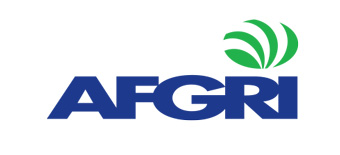The state of the grain industry
NAMPO, 17 May 2019 – With grain, including maize, wheat and several other crops, set to remain the staple diet of South Africans for many years to come, it’s essential that the industry is supported in order to thrive.
This is the view of AFGRI, one of South Africa’s leading agricultural companies, home to AFGRI Grain Management, which handles and stores not only maize, but also wheat, sunflower, soya beans, barley and sorghum at more than 100 operational points throughout South and Southern Africa, including Congo-Brazzaville, Uganda, Tanzania, Zimbabwe, Mozambique and Zambia.
The current storage capacity of around 4,7 million tons in South Africa is due to get a boost from the recent announcement by parent holding company, AFGRI Group Holdings (AGH) and its BEE partner, Izitsalo Employee Investments, of the creation of a strategic grain storage platform vehicle in collaboration with STANLIB Infrastructure Investments, Wiphold, and the Land Bank. The consortium will initially own storage facilities with a total value of R3,6 billion, while AFGRI will manage these storage facilities in terms of a management agreement.
“The AFGRI Grain Silo Company has the clear objective of expanding the current storage capacity to six million tons or more in the near future, allowing us not only to cater for grain storage, but to expand into the storage of other types of commodities,” said Chris Venter, the CEO of AGH, when the deal was announced.
According to Jacob de Villiers, MD of AFGRI Grain Management and CFO of AFGRI, this bodes well for the grain industry, the future of which already looks very positive, with maize farmers in particular increasingly embracing the rotation of their maize crop with oil seeds, boosting the output of both as a result.
In the case of soya beans, increasing local demand has also led to improved production, says de Villiers, which is further good news for the industry as a whole. However, the recent rain during what would have been the traditional harvest time for soya has led to the first challenging harvest period in the county for a number of years, which is challenging for farmers. “This, factored in with the increasing price and yield differential between maize and soya beans, is making the decision fairly difficult for farmers, who might be more inclined to plant maize next year. However, we are optimistic that soya bean production will rebound.”
Given the reality of the growing global population, the role of the grain industry in feeding not only the nation, but also South Africa’s neighbouring states, particularly Zimbabwe, where demand is high, as well as being able to export to international markets, with the hope that government-run rail and port infrastructure will continue to improve, is likely to stimulate the industry even further, says de Villiers.
AFGRI is of course set to play a bigger role in South Africa’s ports going forward, with the announcement in November last year that Transnet had indicated its intent to enter into a 15-year concession agreement with AFGRI for the operation and maintenance of two strategic agri-ports in the country, the Grain Elevator in the Port of East London and the Agri-Port at the Port of Durban. This initiative is aimed at breathing new life into the two terminals through refurbishment, funding, and marketing projects.
De Villiers stresses though that it is of utmost importance that maize production remains financially viable for South African farmers, and as such government should continue to allow free market principles to prevail.
Apart from food security, AFGRI also ensures that grains are handled and stored safely and responsibly, and with a growing worldwide demand for cleaner and safer food, will strive to stay abreast of the latest technologies to ensure it continues to adhere to world-class standards in this regard.
“As mentioned, the new storage platform will give us the ability to expand storage infrastructure in future, which includes putting up new facilities in areas where it is not currently economically feasible, but which will be important in the future,” says de Villiers.
“We need to ensure that as a responsible corporate citizen we support these areas to give them the best possible chance of success, and that farmers have a safe place to store their grain once its harvested. It goes without saying that job creation is just one of the positive spin-offs of such initiatives.”
In addition, other commodities will also be stored in future, enhancing AFGRI’s role in ensuring food security in South Africa and throughout the continent.
De Villiers concludes: “We recognise that it will take massive investment to drive food security, which remains our core vision, and this relates not only the availability of food, but also its affordability. For this reason, we are also cognisant of helping drive down the price of food to the consumer by consolidating our own costs and being open to opportunities to form consortiums with like-minded investors like we’d done on the storage platform to benefit from additional funding and other synergies.”

